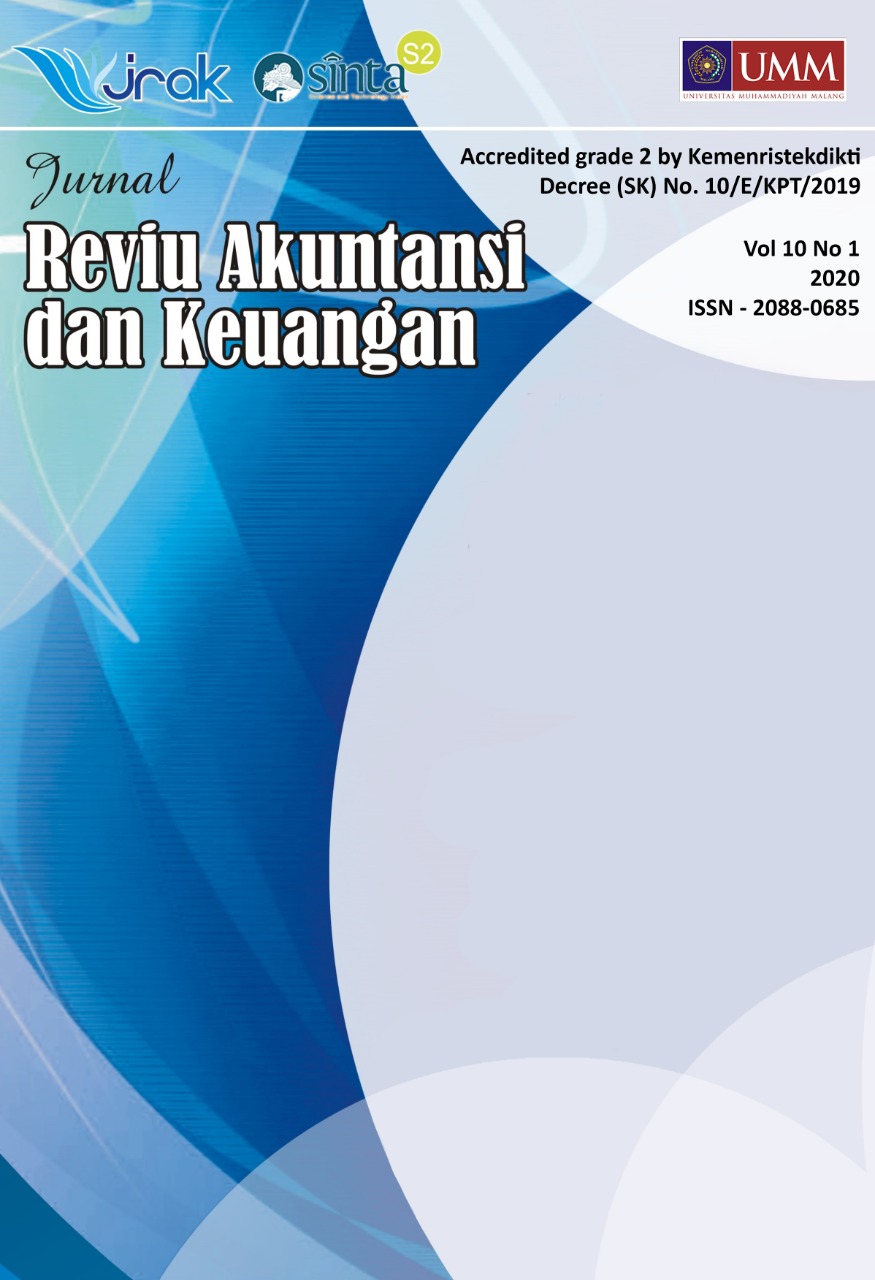SPECIFIC ANTI RULE AVOIDANCE (SAAR): HOW DOES IT AFFECT TAX AVOIDANCE?
DOI:
https://doi.org/10.22219/jrak.v10i1.11083Keywords:
SAAR, tax avoidance, thin capitalization, transfer pricingAbstract
This study aims to empirically prove the influence of the Specific Anti Avoidance Rule (SAAR), namely transfer pricing, thin capitalization, controlled foreign corporations (CFCs), the use of tax heaven countries, and treaty shopping on tax avoidance. SAAR is a special rule to minimize tax avoidanceThe sample in this study is multinational companies listed on the Indonesia Stock Exchange in the 2015-2017 period. The method used is multiple linear regression with SPSS version 24. The results show that transfer pricing, thin capitalization, controlled foreign corporations (CFCs), utilization of tax heaven countries, and treaty shopping have no effect on tax avoidance. The absence of influence of the five independent variables on tax avoidance is due to the sample company data and also the proxy used. The results of the study are expected to contribute especially to the government regarding whether SAAR is sufficient to minimize and overcome tax avoidance and can also be a consideration for the government to implement the General Anti Avoidance Rule (GAAR) to cover the weaknesses of SAAR.
Downloads
Downloads
Published
Issue
Section
License

Jurnal Reviu Akuntansi dan Keuangan is licensed under a Creative Commons Attribution-NonCommercial-ShareAlike 4.0 International License.
Authors who publish with this journal agree to the following terms:
- Authors retain copyright and grant the journal right of first publication with the work simultaneously licensed under a Creative Commons Attribution-NonCommercial-ShareAlike 4.0 International License that allows others to share the work with an acknowledgement of the work's authorship and initial publication in this journal.
- Authors are able to enter into separate, additional contractual arrangements for the non-exclusive distribution of the journal's published version of the work (e.g., post it to an institutional repository or publish it in a book), with an acknowledgement of its initial publication in this journal.
- Authors are permitted and encouraged to post their work online (e.g., in institutional repositories or on their website) prior to and during the submission process, as it can lead to productive exchanges, as well as earlier and greater citation of published work (See The Effect of Open Access).










